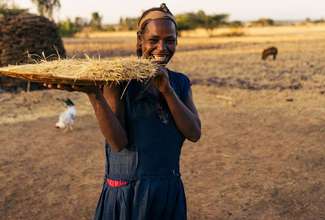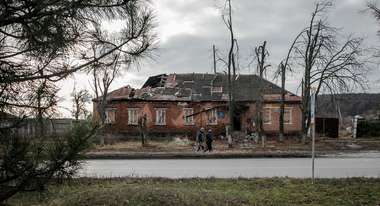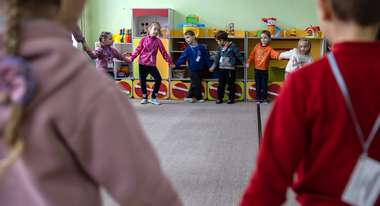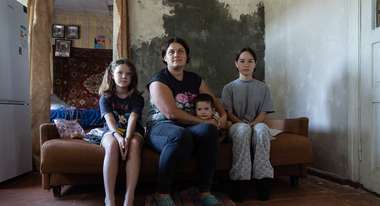War in Ukraine: coming to terms with trauma
More than six million people are on the run in Ukraine. Many of them went through terrible things before they found shelter in places that are safe for the time being. Funded by Welthungerhilfe (WHH) and its partners, psychologists in the city of Ternopil are helping adults and children come to terms with what they have experienced.
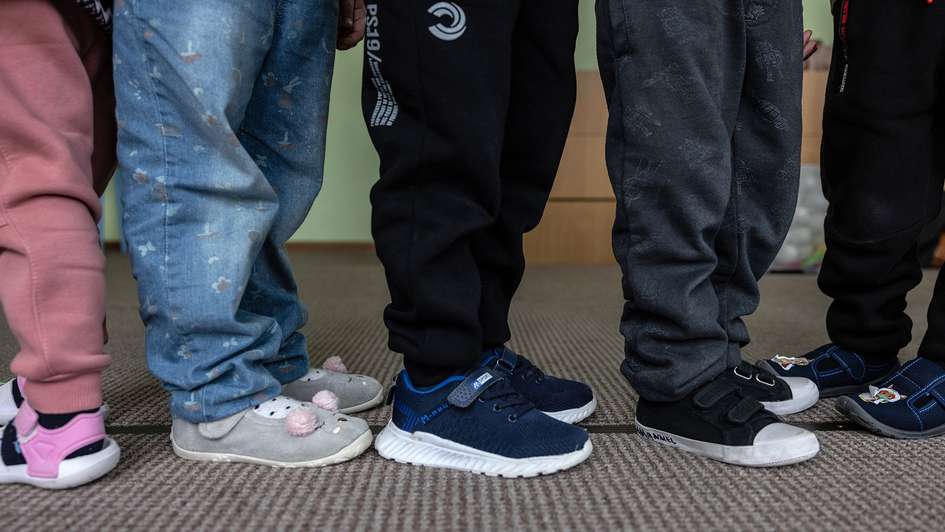
Viktoria Dimchenko and Alex Vorobyor are from different regions of Ukraine. They met in Ternopil, a city in the west of the country. Both escaped the missile attacks in their hometowns and now live with their families in safer places. Since the summer of 2022, they have worked in the WHH-led Joint Emergency Response in Ukraine team (JERU), together with emergency response specialists from partner Concern Worldwide. Viktoria and Alex share the same mission: to help people who fled their homes and experienced the unimaginable.
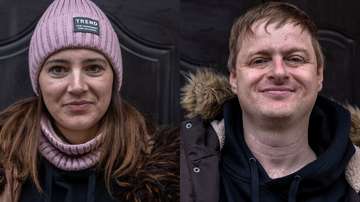
Ukrainian psychologists offer hope
Child psychologist Viktoria Dimchenko is originally from Kherson, where she lived for months under Russian occupation. "During that time, I saw terrible things. People were shot in the streets, and time and again we had to take shelter from attacks in our basement." She held out, staying with friends and family, but Viktoria's eight-year-old son couldn't take it anymore. "Day by day he became more nervous, he could hardly sleep and could no longer concentrate. It was clear: He needed a different, more protected environment." With the move to Ternopil, Viktoria also gave up her longtime psychological counseling practice. How she would continue and where she would find a new job was completely unclear. What was clear was that they had to leave as soon as possible.
Alex Vorobyor is a psychologist from Kharkiv in northeastern Ukraine, a city now in ruins. He escaped with his wife and two sons last March, just before the housing estate where the family lived was almost completely destroyed. Miraculously the house has remained unscathed. Whether it will stay that way, he can only hope. "The most difficult thing about our move was not only that we had to leave our house and our lives – our routines and friends – behind, but also that fleeing first meant unemployment for my wife and me," says Alex.
Since I started working with WHH, I have regained hope. I see that I am needed here, and that feels good.
Alex VorobyorViktoria and Alex care for adult and child refugees. Partnering with kindergartens, they support children who suffered greatly when they fled their homes. "In the last few months, we received a lot of help. We received financial and emotional support. Now we want to help other people deal with their war traumas," says Alex. In Ternopil, many of the refugees live in dormitories provided by the city. Viktoria and Alex spend most of their time in one of them. The hallways of the home are dark, every step echoing. For weeks, there has been limited electricity; fortunately, the heaters are working. Outside there is fresh snow, the cold bites. Currently, 125 people live here in a very confined space. Whole families are housed in small dormitories, with kitchens and bathrooms shared between dozens of residents.
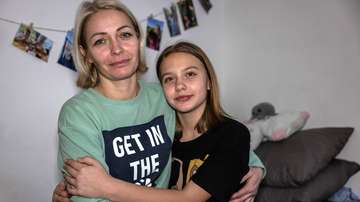
Single mother Mariana from Zaporizhzhya
43-year-old Mariana is standing in the communal kitchen. She lives in one of the rooms with her daughter Sofia, 12. Both have decided to accept the psychological support offered by WHH. The single mother comes from Zaporizhzhya. She fled with her daughter at the beginning of the war. "I had to decide within minutes at that time. Neighboring villages were already being shelled and it was clear to me: I want to protect my daughter," Mariana recalls.
In Ternopil, the two plan to wait until they can return home. "I had never considered psychological support before, but it helps me a lot to process the last months," she adds. "Losing your home is the issue that most people pick up on," Alex explains. "It's confusing and difficult. Many refugees experience sleepless nights and often psychosomatic symptoms like high blood pressure or hair loss." Being able to help people who have experienced similar things to him also helps Alex himself. Viktoria confirms this: "The war – unfortunately, this is now our history, the reality in our country," she says. "So we have to learn to deal with it – we don't have any other choice."





